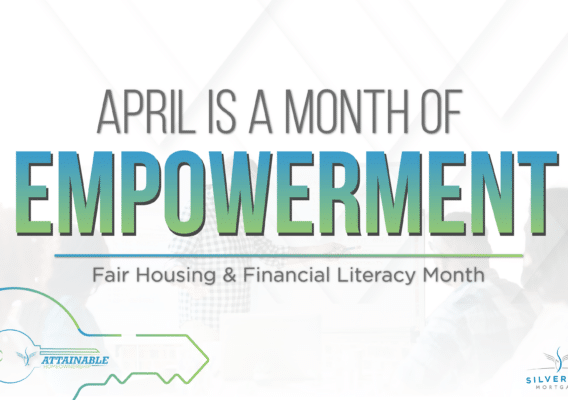If you are considering buying a home of your own, there’s no escaping the costs that are involved with doing so. While the myth of needing a 20% down payment has been debunked and it’s well known that low to no down payment options are widely available, there are still plenty of expenses that come with being a homeowner. Whether you need extra money to cover closing costs or just want to be prepared for any unexpected maintenance that may arise, it doesn’t hurt to be ready by having some money tucked away. In this post, we’ll discuss helpful ways to save so that you’re financially ready for your next home purchase, or any other large spend that may be looming.
Have A Goal
Identifying what you’re saving for can help you stay motivated. Maybe you need extra money for a down payment, or you want to furnish your home with the latest and greatest. Either way, seeing the finish line will help keep you on track. Determine how much you need and calculate the amount you must set aside each month to meet that total within a specific time frame. You can always go beyond your initial goal, but setting your sights on the prize may be just what you need to fulfill your objective. Once you meet your first goal, it will become easier to create and conquer future ones, setting you up for savings success.
Check Your Credit Often
It’s a good idea to review your credit report at least once every 12 months. This is the best way to become aware of any inaccuracies or fraud attempts. The last thing you want is a discrepancy on your credit sabotaging your efforts. By taking a look at your credit history on a regular basis, you will probably notice how important it is to make on-time payments. Along with making sure there are no discrepancies on your credit report, it’s also an excellent start to managing your personal finances.
Track Unnecessary Spending
It has never been easier to track your spending habits. With the variety of apps available, you can link your bank accounts and get an in-depth look at where your money is going. Having a visual that makes you aware of exactly how you’re using your money can be a real wake-up call. Once you have enough data, start looking at every cent coming out of your accounts that aren’t associated with living essentials or other important obligations (rent/mortgage, utility bills, car payments, insurance, credit cards) to see where there are opportunities to save.
Start Cutting Costs
Tracking your spending is going to reveal opportunities where you can save. It’s up to you what you want to cut but consider all your options. Here are some suggestions:
- Consider cutting cable or seeking cheaper options
- Cancel unnecessary subscriptions
- Buy generic products when possible
- Look for ways to reduce home energy costs
- Cook more and eat out less
Looking for more ways to save? Here are some helpful tips to get you started.
Find A Side Hustle
If you have the time and energy, consider looking for ways to make additional income. Reports show there are 6 million more gig workers today than just ten years ago, so you certainly would not be alone in your quest to make additional income in a non-traditional way. From making deliveries to providing freelance work, there are numerous ways to develop a side hustle. Just make sure you’re putting that extra income into your savings account.
Refinance Your Mortgage
If you currently own a home, refinancing your mortgage could mean significant savings. By refinancing, you’re basically getting a new loan to replace your existing one. If mortgage interest rates are lower than your current interest rate, then this could mean a lower mortgage payment each month and extra money in your pocket. However, be sure to compare your potential savings with the expenses that will be incurred with the refinancing transaction. There are many mortgage refinance calculators on the internet that will estimate how many months it will take before you actually begin to save money. Be sure to reach out to a licensed mortgage loan originator to see if refinancing is right for you and to discuss your options.
Creating a budget is a very personal thing. What works for one person may not work for another. It’s up to you to find a plan that works for you. If your reason for saving is to buy a home, be sure to reach out to a Silverton Mortgage loan originator. We know that everyone’s circumstances are uniquely different, and our team members are well-versed in looking at your specific needs as they help guide you in the right direction.
You Might Also Like

Navigating the Mortgage Maze: The Mortgage Process Simplified

April: The Month of Empowerment

